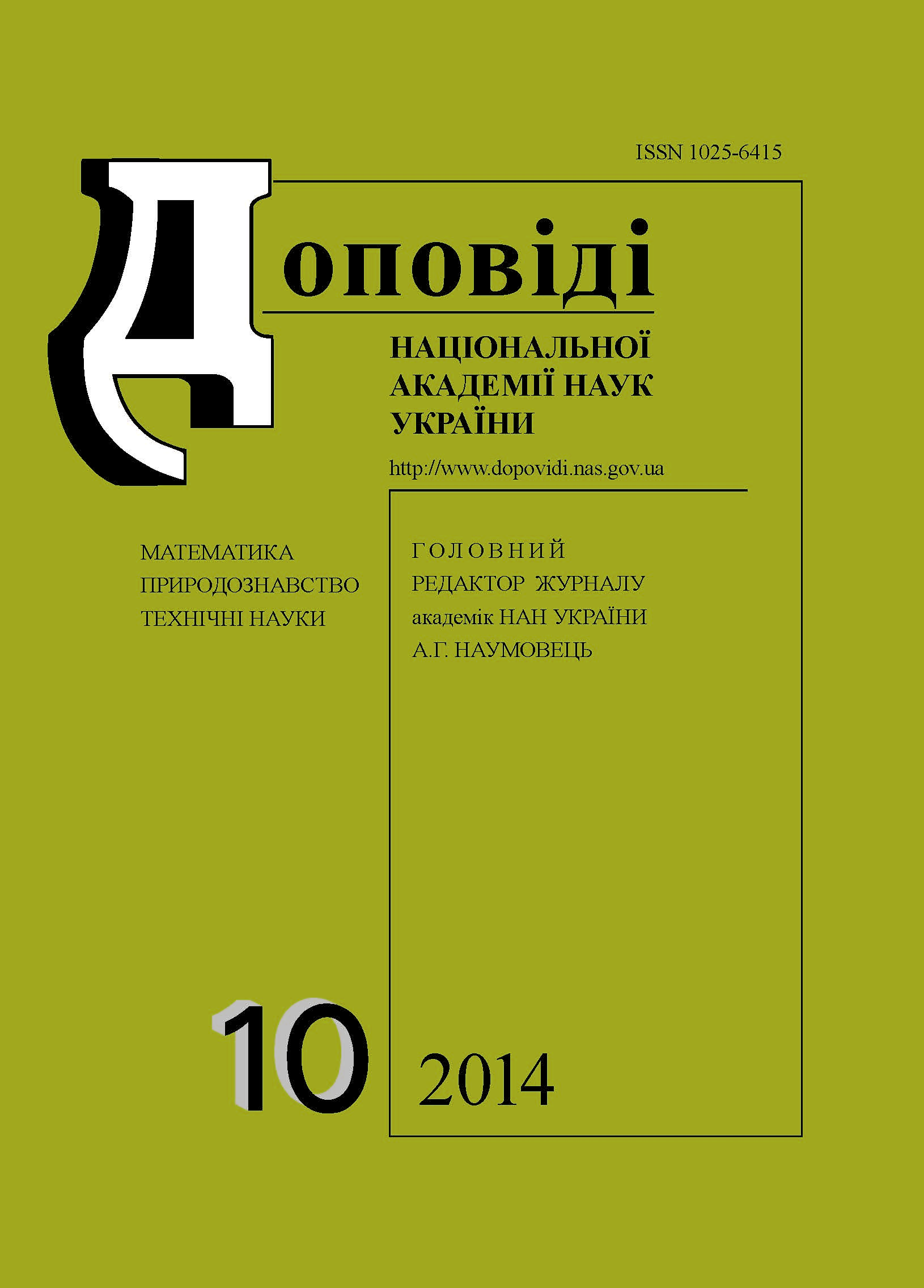Identification of the Matuyama-Brunhes boundary by paleomagnetic studies of the Roxolany profile (Western Black Sea region)
DOI:
https://doi.org/10.15407/dopovidi2014.10.092Keywords:
Matuyama-Brunhes, paleomagnetic studies, Roxolany profileAbstract
The position of the Matuyama-Brunhes boundary in different sections of the northwestern Black Sea loess-soil formation is located in the different stratigraphic horizons, which causes a lot of discussion. New paleomagnetic studies of the 55-meter Quaternary key section on the Dniester estuary near the village of Roxolany determine the Matuyama–Brunhes boundary at a depth of 46.6 m between the Lubny and Martonosha soil horizons. This agrees with modern knowledge of Ukrainian scientists about Quaternary records in south Ukraine and is not consistent with the results, which identified this boundary at a depth of 34 m in loesses above the level of PK7. The primary component of the natural remanent magnetization and their polarity were identified both in loess and soil horizons due to the detailed measurements on modern equipments.
Downloads
References
Tretyak A. N., Vigilyanskaya L. I. Geofiz zhyrn., 1994, 16, No 2: 3–14 (in Russian).
Tretyak A. N., Vigilyanskaya L. I., Makarenko V. N., Dudkin V. P. The fine structure of the geomagnetic field in the Late Cenozoic, Kiev: Nauk. dumka, 1989 (in Russian).
Tretyak A. N. The natural residual magnetization problem and paleomagnetic stratification of sedimentary rocks, Kiev: Nauk. dumka, 1983 (in Russian).
Tretyak A. N., Shevchenko A. I., Dudkin V. P., Vigilyanskaya L. I. Paleomagnetic stratigraphy reference sections of the Late Cenozoic southern Ukraine, Kiev: AN UkrSSR, Int. geol. nauk, 1987 (in Russian).
Bakhmutov V. G., Mokriak I. N., Skarboviichuk T. V., Yakukhno V. I. Geofiz. zhurn., 2005, 27, No 6: 980–991 (in Russian).
Tsatskin A., Heller F., Gendler T. S. et al. Phys. Chem. Earth (A), 2001, 26, No 11.-/12: 911–916.
Tsatskin A., Heller F., Hailwood E. et al. Palaeogeography, Palaeoclimatoligy, Palaeoecology, 1998, 143: 111–133. https://doi.org/10.1016/S0031-0182(98)00073-X
Pilipenko O. V., Sharonova Z. V., Trubikhin V. M., Didenko A. N. Fizika Zemli, 2005, No 1: 66–73 (in Russian).
Sharonova Z. V., Pilipenko O. V., Truvokhin V. M. et al. Fizika Zemli, 2004, No 1: 4–13 (in Russian).
Evans M., Heller F. Environmental magnetism, San Diego: Acad. Press, 2003.
Gendler T. S., Heller F., Tsatskin A. et al. Quaternary International, 2006, No 152–153: 78–93. https://doi.org/10.1016/j.quaint.2006.01.001
Du Pasquier J. Environmental paleomagnetic study of the loess/paleosol sequence from Roxolany (Ukraine). Diploma Thesis, Institute fur Geophysik, Swiss Federal Institute of Technology, Zurich, 1999
Sartori M. The quaternary climate in loess sediments: Evidence from rock and mineral magnetic and geochemical analysis. Doctor of Natural Sciences Thesis, Zurich, Institute fur Geophysik, Swiss Federal Institute of Technology, 2000.
Man O. Studia Geoph. Geodaetica, 2008, No 52: 173–186.
Gozhyk P. Loess cover of the Northern Black Sea: Proceeding of the XVIII Ukr.-pol. workshop 8–13 Sept. 2013 p. – Liublin: KARTPOL s. c. Lublin, 2013: 17–33 (in Russian).
Downloads
Published
How to Cite
Issue
Section
License
Copyright (c) 2025 Reports of the National Academy of Sciences of Ukraine

This work is licensed under a Creative Commons Attribution-NonCommercial 4.0 International License.



